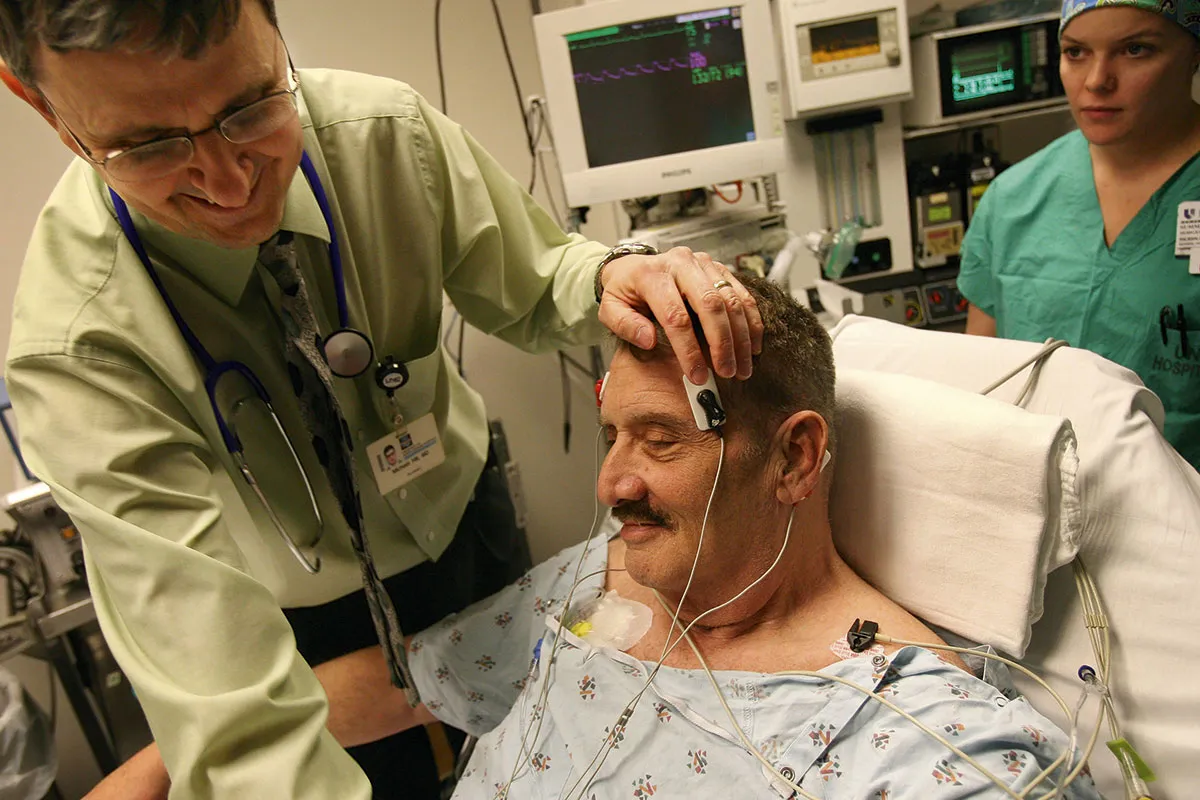The use of electroconvulsive therapy (ECT) as a treatment for severe mental health problems, including intractable depression, has come under renewed scrutiny. Sometimes referred to disparagingly as ‘shock therapy’, ECT involves passing an electric current through the brain to deliberately induce a brief seizure. The fresh concerns follow a series of recent newspaper reports based on an NHS audit that showed the continued widespread use of the practice in England.
The Independent ran a story that said, “Thousands of women given ‘dangerous’ electric shocks as mental health treatment in England”, which also featured an interview with a woman who’d received ECT and said it had badly affected her memory. The Observer ran the headline, “Brain damage claim leads to new row over electroshock therapy”.
The NHS England data that fuelled these stories was actually published in 2021 by a research group led by the academic and clinical psychologist Prof John Read – a long-time critic of ECT who believes the practice should be banned. The data showed that 1,964 patients received ECT in England in 2019 and that 67 per cent were women. Read doubts the effectiveness of ECT and says it causes long-lasting or permanent brain damage and memory loss.
First developed in the 1930s, ECT was sometimes misused in its early years and will be forever associated with the character Randle McMurphy, played by Jack Nicholson in the 1975 film One Flew Over The Cuckoo’s Nest. McMurphy, a mental health patient, is brutalised by medical staff, including being given ECT against his will.
So, what is the truth about this treatment and the claims that it causes memory problems and brain damage? It’s important to note that ECT has changed from its early years, when it was used without muscle relaxant or anaesthesia. Both of these are part of the basic protocol today. Also, bear in mind that ECT is only recommended in extreme cases where other treatments have failed and/or a patient’s problems are so severe as to be life-threatening.
That said, the concerns about ECT are not unfounded. There is published data indicating adverse effects on memory following ECT. Meanwhile, the National Institute for Health and Care Excellence (NICE) – the independent body that advises the UK government – states that many patients report memory loss after ECT and, for some, the effects of this impairment outweigh any benefits.

However, the notion that ECT causes brain damage is harder to support. In an in-depth essay for Aeon magazine, Read cited a review from The Lancet from 1946 that speculated about signs of brain damage seen in the autopsies of patients who’d had ECT. But the author of that review, Bernard Alpers, was cautious in his interpretations (many of the patients had complex health problems that could have caused the damage) and he wrote that “clinical experience has long since taught that electrical shock treatment is safe”.
Turning to more recent evidence, Read cited a 2012 study that found reduced functional connectivity in the front of patients’ brains after ECT, yet many experts would dispute that this change in functional activity is a sign of brain damage (the study authors themselves did not use this language) – especially as it correlated with improvements in symptoms.
Other reviews not mentioned by Read are more reassuring, such as a 2006 paper in The American Journal Of Psychiatry that concluded “there is no credible evidence that ECT causes structural brain damage”. A review in the Indian Journal Of Psychiatry in 2020 similarly stated that “there is a lack of evidence at present to suggest that ECT causes brain damage”.
In its guidance, NICE states: “The six reviewed studies that used brain-scanning techniques did not provide any evidence that ECT causes brain damage”.
It’s also worth noting the recent animal research carried out at the University of Heidelberg, Germany, suggests that ECT can actually stimulate neurogenesis, which is the growth of new neurons. Other research points to increased volume in various brain areas after ECT. Taken together, researchers believe the therapeutic benefits of ECT could be related to various brain processes including increased neuroplasticity, which can be compromised in depression.
Prof Wendy Burn is Chair of the Royal College of Psychiatrists Public Engagement Board and she previously worked on a leaflet about ECT produced for the public.
“ECT remains an important treatment for people with severe depression who have not responded to other treatments,” she says. “This is recognised by NICE, which has recently reviewed its guideline for the treatment of depression and continues to recommend it. A higher number of women than men receive ECT because they are more likely to experience depression and more likely to ask for help.”
Read more about mental health treatments:

